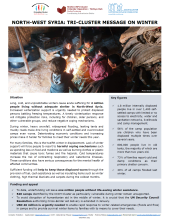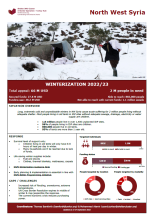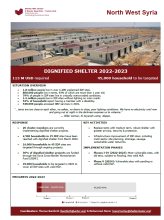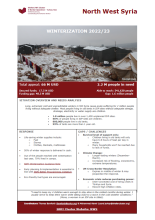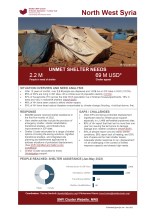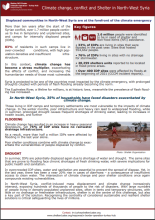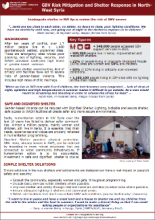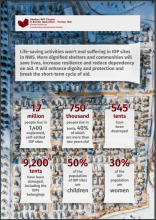North-West Syria Hub
Advocacy
Working closely with its Strategic Advisory Group (SAG) members and Technical Working Groups, as well as with other clusters, S/NFI is advocating for a strengthened humanitarian response in North-west Syria. Ranging from dignified shelter solutions and timely, scaled-up winterization, to mitigating the risks associated with GBV and shelter, and responding to impacts of climate change.
Advocacy Papers
A joint message on winterization in North-West Syria from the SNFI, CCCM and Protection Clusters.
A timely winterization response will mitigate protection risks, including for children, older persons, and other vulnerable groups, and reduce negative coping mechanisms. With winter just around the corner, current underfunding will leave one million people without life-saving winter assistance.
Updated as of 27 September 2022. Long, extremely cold and unpredictable winters in NW Syria cause acute suffering for 2 million people living without adequate shelter.
There is an urgent need to replace tents in NWS with medium term, robust shelter with greater privacy, security and protection.
Long, extremely cold and unpredictable winters in NW Syria cause acute suffering for 2 million people living without adequate shelter.
2.2 million people are in need of shelter assistance in North-west Syria.
Displaced communities in North-West Syria are at the forefront of the climate emergency.
Inadequate shelter in NW Syria makes the risk of GBV severe.
More dignified shelters and communities will save lives, increase resilience and reduce dependency on aid.

